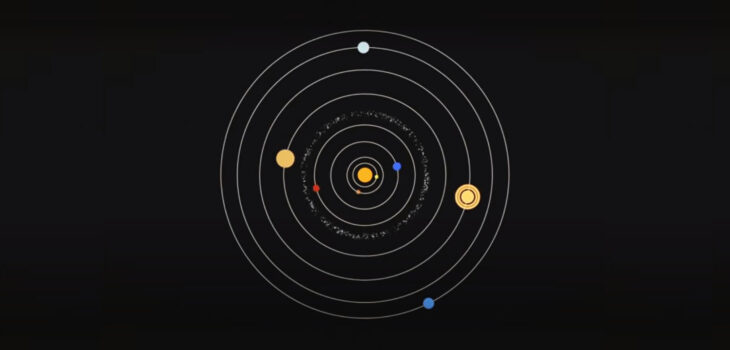
A guide to the energy of the Earth
By Joshua M. Sneideman
Energy is all around us, a physical quantity that follows precise natural laws. Our universe has a finite amount of it; it’s neither created nor destroyed but can take different forms, such as kinetic or potential energy, with different properties in formulas to remember. For instance, an LED desk lamps 6 watt bulb transfers 6 joules of light energy per second.
But let’s jump back up into space to look at our planet, it’s systems, and their energy flow. Earth’s physical systems include the atmosphere, hydrosphere, lithosphere, and biosphere. Energy moves in and out of these systems, and during any energy transfer between them, some is lost to the surroundings, as heat, light, sound, vibration or movement.
Our planet energy comes from internal and external sources. Geothermal energy from radioactive isotopes and rotational energy from the spinning of the Earth are internal sources of energy, while the Sun is the major external source, driving certain systems like our weather and climate. Sunlight warms the surface and atmosphere in varying amounts, and this causes convection, producing winds and influencing ocean currents. Infrared radiation, radiating out from the warm surface of the Earth, gets trapped by greenhouse gases and further affects the energy flow.
The Sun is also the major source of energy for organisms. Plants, algae and cyanobacteria use sunlight to produce organic matter from carbon dioxide and water, powering the biospher’es food chains. We released this food energy using chemical reactions, like combustion and respiration. At each level in a food chain, some energy is stored in newly made chemical structures, but most is lost to the surroundings, as heat, like your body heat, released by your digestion of food.
Now, as plants are eaten by primary consumers, only about 10% of their total energy is passed on to the next level. Since energy can only flow in one direction in a food chain, from producers on to consumers and decomposers, an organism that eats lower on the food chain, is more efficient than one higher up. So eating producers is the most efficient level at which an animal can get its energy, but without continual input of energy to those producers, most from sunlight, life on Earth as we know it would cease to exist.
We humans, of course,spend our energy doing a lot of things besides eating. We ravel, we build, we power all sorts of technology. To do all this, we use sources like fossil fuels: coal, oil and natural gas, which contain energy that plants captured from sunlight long ago and stored in the form of carbon. When we burn fossil fuels in power plants, we released this stored energy to generate electricity.
To generate electricity, heat from burning fossil fuels is used to power turbines that rotate magnets, which in turn, create magnetic field changes relative to a coil of wire, causing electrons to be induced to flow in the wire. Modern civilization depends on our ability to keep powering that flow of electrons. Fortunately, we aren’t limited to burning non-renewable fossil fuels to generate electricity. Electrons can also be induced to flow by direct interaction with light particles, which is how a solar cell operates. Other renewable energy sources, such as wind, water, geothermal and biofuels can also be used to generate electricity.
Global demand for energy is increasing, but the planet has limited energy resources to access through a complex energy infrastructure. As populations rise, alongside rates of industrialization and development, our energy decisions grow more and more important. Access to energy impacts health, education, political power and socioeconomic status. If we improve our energy efficiency, we can use our natural resources more responsibly and improve quality of life for everyone.